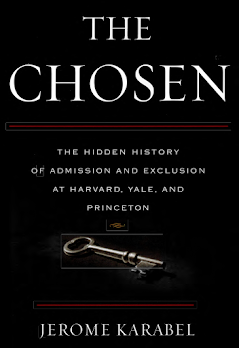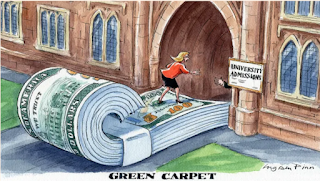Literature Review #2

Karabel, Jerome. The Chosen: The Hidden History of Admission and Exclusion at Harvard, Yale, and Princeton . Houghton Mifflin Company, 2005. Summary: The Chosen recounts a history of anti-Semitism and show how the Big Three—Harvard, Yale, and Princeton—constantly tweaked the admissions criteria to reduce the admission of Jews. Realizing that the definition of merit based solely on academic criteria was leading to unwanted students, the Big Three redefines merit, making highly subjective qualities such as “character” and “personality” central to the criteria. Karabel’s overarching theme is that admissions policy inevitably reflects the values and cultural ideals of the dominant group and that those decisions are inconsistent with the public interest. Inspired by Michael Young’s The Rise of the Meritocracy , Karabel believes that ideology of merit has its dark side as it ultimately deflects attention from real issues of inequality onto the unachievable social mobility. Author: Jerome

